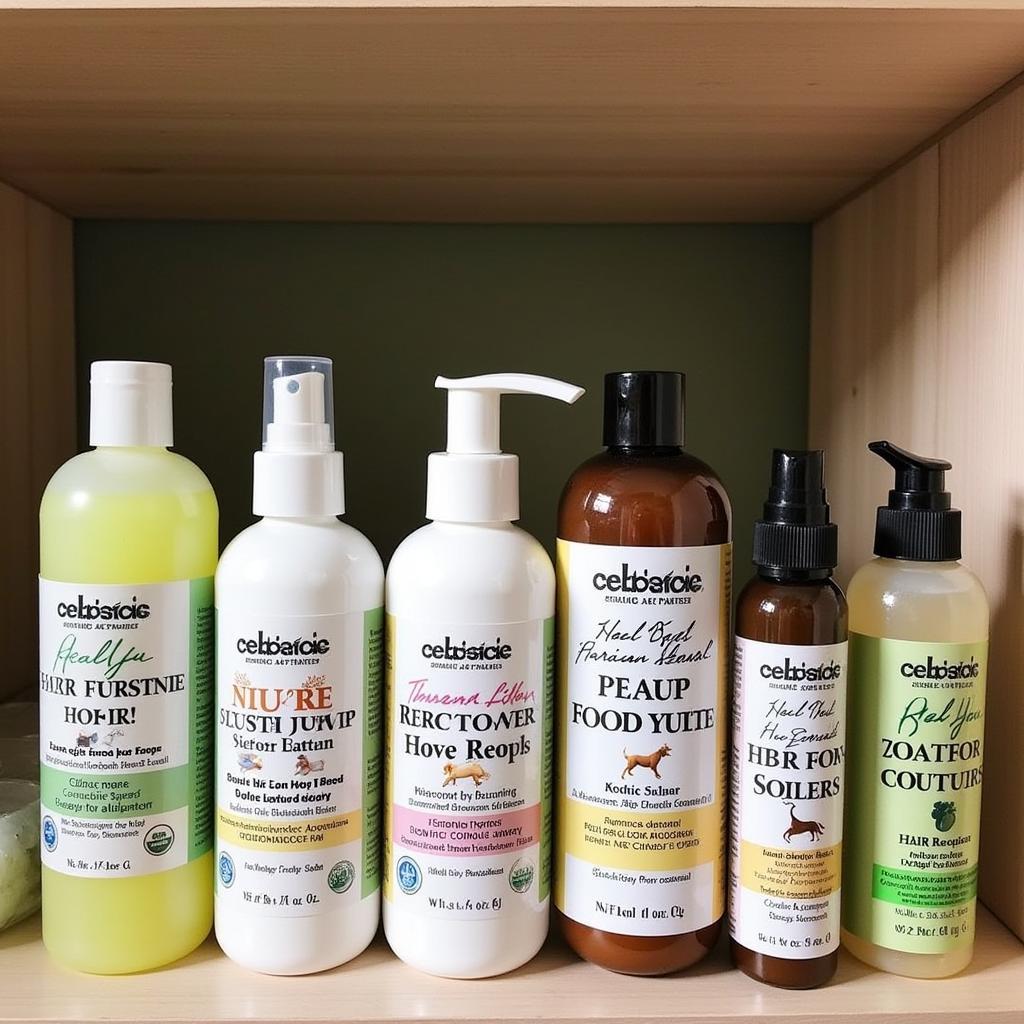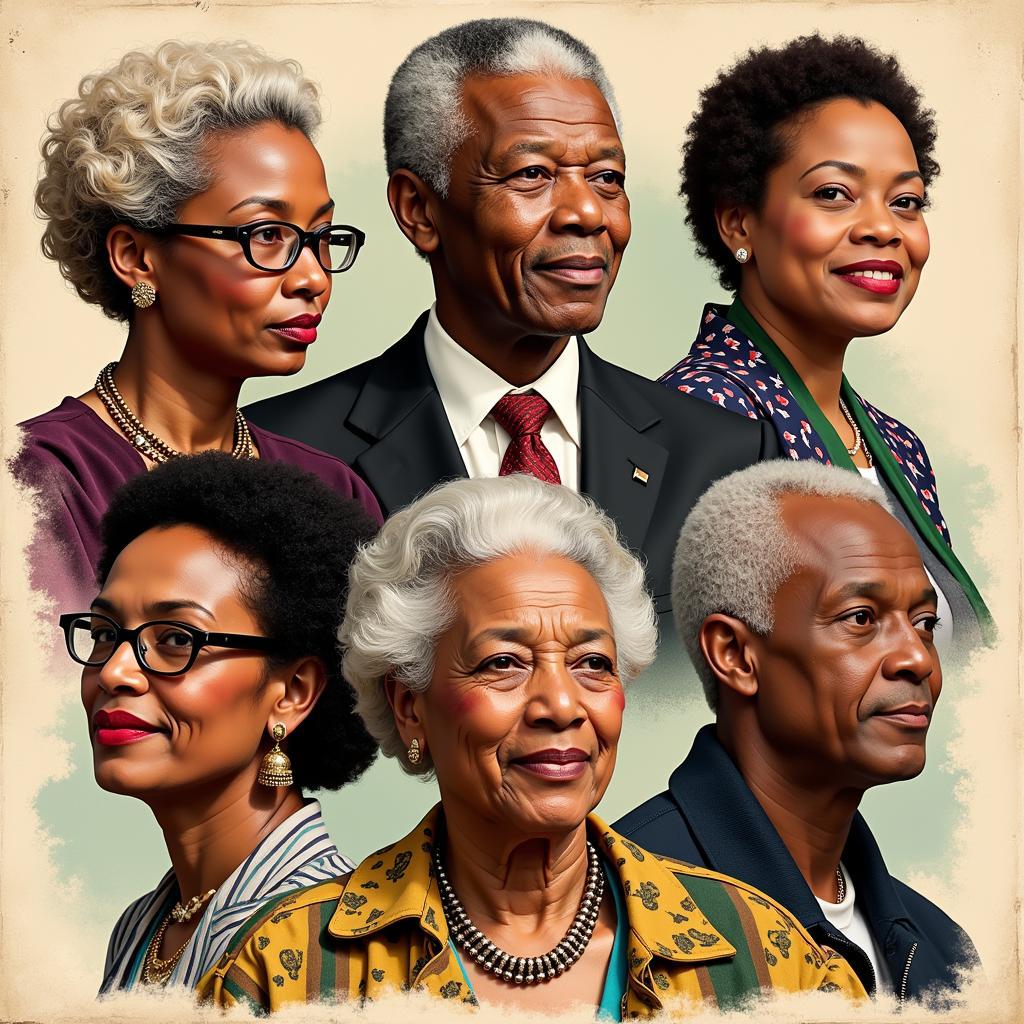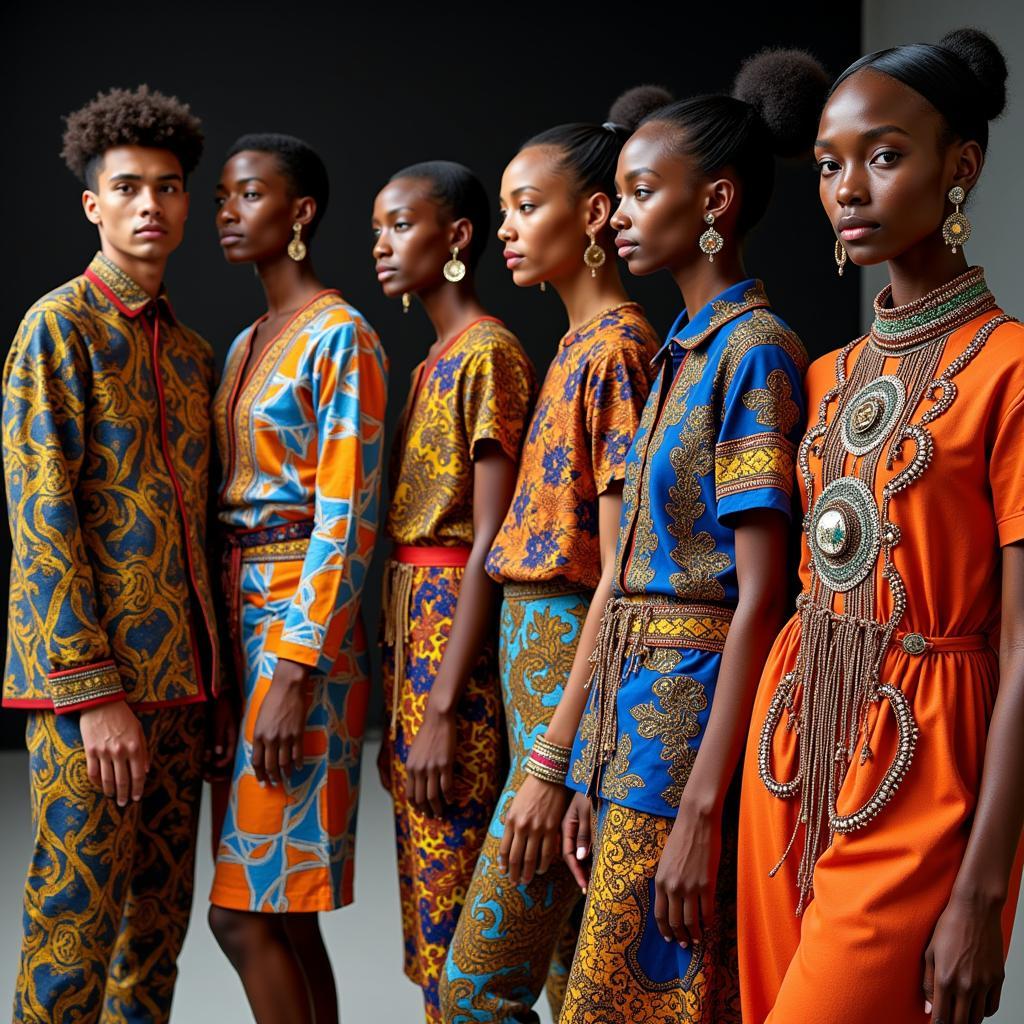Embracing Heritage: A Celebration of African American Women’s Natural Hair
African American Women Natural Hair is experiencing a glorious renaissance. From powerful afros to intricate braids, Black women are celebrating their natural textures and redefining beauty standards. This shift goes beyond mere aesthetics; it’s a profound statement of identity, self-love, and cultural pride.
A Complex History Woven into Each Strand
The relationship between African American women and their hair is deeply intertwined with a history of oppression and resilience. For centuries, Eurocentric beauty ideals dominated, deeming natural Black hair as “unprofessional” or “unkempt.” This led to generations of women feeling pressured to conform to straight hairstyles through the use of relaxers and hot combs, often at the expense of their health and self-esteem.
The Rise of the Natural Hair Movement
The latter part of the 20th century witnessed a powerful shift. The Civil Rights Movement and the Black Power Movement sparked a resurgence of cultural pride and self-acceptance. Natural hair became a symbol of empowerment, reclaiming Black beauty and challenging societal norms.
This movement gained momentum in the 21st century with the rise of social media. Platforms like Instagram and YouTube provided spaces for Black women to share their hair journeys, exchange styling tips, and celebrate their natural crowns.
More Than Just Hair: Embracing Identity and Heritage
For many African American women, embracing their natural hair is a journey of self-discovery and a celebration of their heritage. Each curl pattern, each coil, tells a story—a story passed down through generations.
“There’s a spiritual element to embracing my natural hair,” says Maya Jackson, a hairstylist specializing in natural hair care. “It’s about connecting with my ancestors, honoring their strength and beauty.”
 Natural Hair Products Displayed on a Shelf
Natural Hair Products Displayed on a Shelf
Navigating the Challenges and Celebrating the Victories
The journey to embracing natural hair isn’t always easy. Many women face discrimination based on their hair, encountering microaggressions and even systemic biases in workplaces and educational institutions.
However, amidst these challenges, there’s immense joy and liberation in embracing one’s authentic self. The natural hair movement continues to gain traction, breaking down barriers and paving the way for greater acceptance and inclusivity.
FAQs about African American Women’s Natural Hair
What are some popular natural hairstyles for African American women?
There’s a wide array of stunning styles, including:
- Afros
- Braids (cornrows, box braids, goddess braids)
- Twists (flat twists, two-strand twists)
- Locs
- Bantu knots
- Wash-and-go styles
What are some tips for caring for natural hair?
- Moisturize regularly.
- Use sulfate-free shampoos and deep conditioners.
- Detangle gently with a wide-tooth comb.
- Protect your hair at night with a satin scarf or pillowcase.
What does it mean to “transition” to natural hair?
Transitioning is the process of growing out your natural hair while gradually cutting off chemically straightened ends. It’s a personal choice and can take several months to a year.
How can I find a stylist who specializes in natural hair?
Word-of-mouth referrals are often best. You can also check online directories and social media for recommendations. When choosing a stylist, look for someone who understands your hair type and styling goals.
Embracing Your Natural Crown: A Celebration of Beauty and Resilience
The journey of embracing African American women’s natural hair is ultimately a celebration of individuality, resilience, and cultural heritage. It’s about embracing the beauty of diversity and challenging societal norms. As more and more women embrace their natural textures, they inspire generations to come to love and accept themselves unconditionally.


